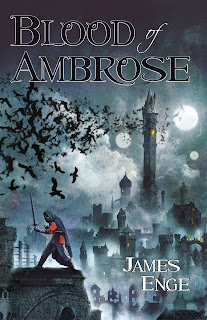James Enge: The Tension between Invention & Realism
Michael A. Ventrella has conducted a wonderful interview with James Enge, talking about his background, his influences, his thoughts on fantasy literature and classic myth, and, of course, his novels Blood of Ambrose and This Crooked Way
. Here’s a taste:
VENTRELLA: Creating a fantasy world is never easy, because it must be rooted in believability. What have you done to make your world both fantastic and believable? Have you found it difficult?
ENGE: I try to maintain a certain tension between free invention and concrete realism. My favorite bits in my own writing are physical descriptions which are probably invisible to everyone else. In my first story, the hero has occasion to peer through “a dark shoe-shaped patch of nothingness”. It makes perfect sense in the world of the story, but it’s not something that you’re likely to see on the street on your way to work.
Meanwhile, C.S.E. Cooney has posted a great review of This Crooked Way.
In this book, the monsters are satisfyingly juicy and crunchable. The villains are terrifying – hardly less so when they’re desperate and likable than when they’re cackling and self-assured. The heroes are… wonderful. They bleed on everything. And Morlock’s main nemesis (why spoil it?) is utterly charming and wholly horrible and occasionally sympathetic. Egad, I liked this book.
What’s even better is she starts out saying the “episodic novel” might not be the form for her, and ends up loving the book. Nice.
James Enge: The Tension between Invention & Realism Read More »









